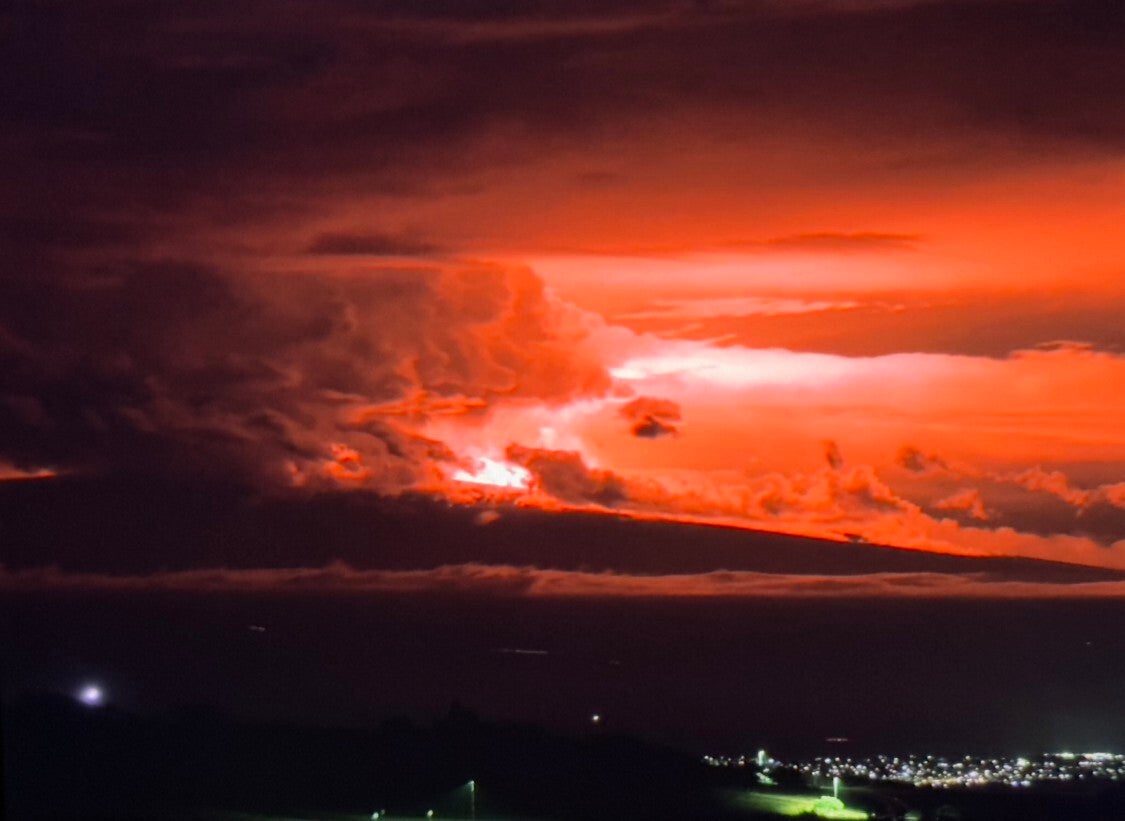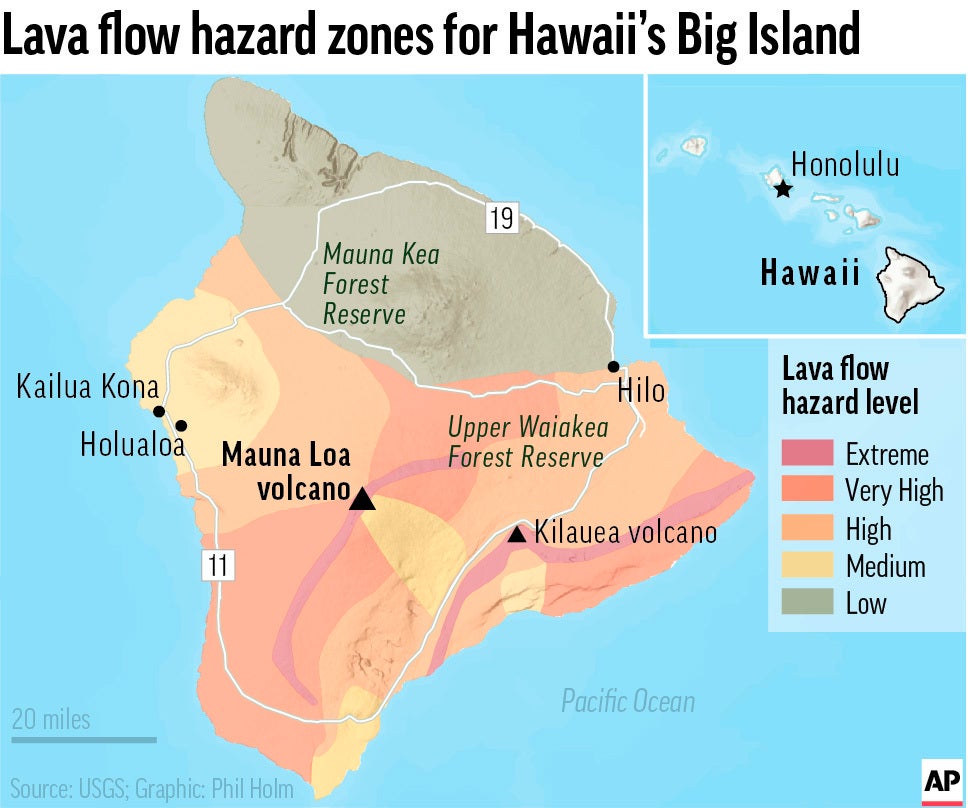World’s largest active volcano Mauna Loa erupts in Hawaii causing more than dozen earthquakes
Vulnerable people told to remain indoors during expected ashfall
Your support helps us to tell the story
From reproductive rights to climate change to Big Tech, The Independent is on the ground when the story is developing. Whether it's investigating the financials of Elon Musk's pro-Trump PAC or producing our latest documentary, 'The A Word', which shines a light on the American women fighting for reproductive rights, we know how important it is to parse out the facts from the messaging.
At such a critical moment in US history, we need reporters on the ground. Your donation allows us to keep sending journalists to speak to both sides of the story.
The Independent is trusted by Americans across the entire political spectrum. And unlike many other quality news outlets, we choose not to lock Americans out of our reporting and analysis with paywalls. We believe quality journalism should be available to everyone, paid for by those who can afford it.
Your support makes all the difference.Hawaii’s National Weather Service branch has issued an ashfall warning after an eruption began on Mauna Loa, the largest volcano on Earth, on the state’s Big Island.
The eruption, the volcano’s first in nearly four decades, has triggered dozens of earthquakes of more than 2.5 magnitude on the richter scale, one of them clocking in at 4.2.
According to the Hawaiian Volcano Observatory, the eruption began at approximately 11.30pm Hawaii time on Sunday night. The service warned that “winds may carry volcanic gas and possibly fine ash ... downwind”.
So far, the service has said that lava flows “are contained within the summit area and are not threatening downslope communities”, but also warned that the early stages of eruption can see lava flows change rapidly.
“If the eruption remains in Moku‘āweoweo, lava flows will most likely be confined within the caldera walls,” wrote the observatory in its overnight notification. “However, if the eruptive vents migrate outside its walls, lava flows may move rapidly downslope.”
Residents of the area around the eruption have been warned that up to a quarter-inch of ash may fall on some areas. Those with respiratory illnesses have been told to remain indoors, while all others are advised to wear face coverings when outdoors.

The National Park Service also warned citizens to be weary of “Pele’s hair”, thin strands of glass fibres formed during volcanic eruptions. The service added that the fibres, which are light enough to be carried on strong winds, are sharp enough to embed themselves in skin and eyes.
Mauna Loa’s last major eruption was in 1984, when lava flows threatened the Big Island’s main population centre, Hilo. There have been a total of 39 eruptions documented since 1832. According to the US Geological Survey, they have occurred once every six years on average over the last 3,000 years.

Warnings leading up to the latest eruption were first issued in September, with geologists noting an uptick in the frequency of earthquakes. By the start of October, there were around 40 being detected every day, resulting in the warning level for the volcano being upgraded. The alert is now at the highest level.




Join our commenting forum
Join thought-provoking conversations, follow other Independent readers and see their replies
Comments